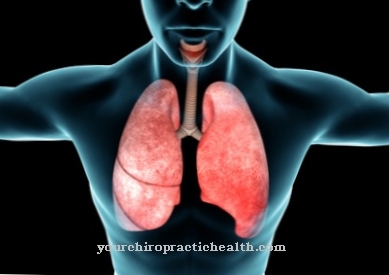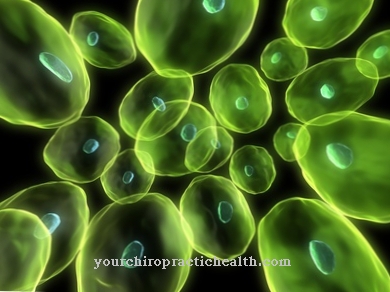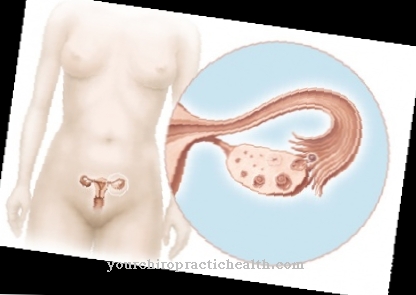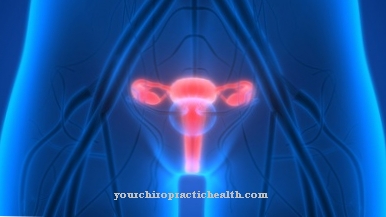In order to be able to cope with everyday tasks, it is important to concentration to be able to build. The focus is on the task to be mastered and disruptive factors are ignored. If you are unable to concentrate, this focusing is not possible, which leads to a distraction from what was originally planned.
What is concentration?

The term concentration comes from psychology and in the broadest sense describes the directing of attention to a certain action, an activity or a goal. This steering is done by focusing on what is to be achieved.
In this context, focus means the sole consideration of an activity to be carried out over a certain period of time. Disturbing noises, people or movements are masked out to a certain extent so that the action can be carried out conscientiously.
The word concentration comes from the Latin concentra, which means "together to the center". The term puts the goal of the activity in focus (focusing).
Over time, concentration decreases, which increases the susceptibility of the directed action to error. It requires mental exertion and leads to signs of fatigue after prolonged maintenance.
Concentration can be measured using a variety of brain teasers and stress tests. For many people, poor concentration leads to delays in performing actions and tasks and can be stressful in the long run.
The concentration is influenced by emotional factors, the physical condition and environmental conditions. But diet can also affect concentration. The factors interact with one another. Concentration is therefore not constant, but fluctuates depending on the physical and mental state as well as the daily form.
Function & task
Concentration is essential for carrying out a wide variety of tasks or activities. If the person is unable to concentrate, it can be dangerous, depending on the situation.
Driving a car is a good example. It's a process and a course of action that is quickly automated. It runs automatically, as the necessary processes are internalized through regular driving. As a result, it happens more often than the average that concentration decreases while driving, as it is not actively required in many situations. Reflexes come from habit and people act without having to think about them. However, if there are sudden, unknown situations in traffic, it is important to concentrate on your own steps in order to be able to react accordingly.
An increased attention span also increases performance. Concentration is important in school and at work in order to be able to grasp difficult issues. If the person is distracted, it is difficult or impossible to save and keep content.
The processing of everyday information therefore always requires a certain amount of concentration. This applies in particular to subject areas that lie outside of the activities normally carried out. Thus, attention and concentration primarily fall under the protective mechanisms, but on the other hand are also jointly responsible for the ability to learn.
For example, a high IQ and aptitude in children are not enough to achieve a good school leaving certificate. Concentrating on set tasks is an important pillar of learning alongside motivation.
The concentration is promoted by omega-3 fatty acids and vitamin B. Exercise, short days of sleep as well as meditation or other concentration exercises have a positive effect.
You can find your medication here
➔ Medicines against concentration disordersIllnesses & ailments
Concentration disorders are primarily a description of a symptom. A lack of concentration is not an illness in itself, but in most cases a side effect of other illnesses or complaints. The lack of concentration describes the inability to focus on an activity to be performed over a certain period of time. Affected people are unable to shield off other stimuli.
The causes can be varied. A lack of concentration is often only a short-lived phenomenon, caused, for example, by a lack of sleep. But stress factors or distraction from external conditions can also impair concentration.
Overloading also leads to a decrease in concentration in many cases. Humans are only able to absorb new things for a certain period of time. He then needs a rest period to process what he has recorded. If the capacity and amount of it is exhausted, the concentration disappears. Inattention and tiredness are often the result.
Other causes can be a lack of exercise, insufficient oxygen supply, or malnutrition. Depending on the intensity, allergies can also have a corresponding effect. The use of legal or illegal drugs also often reduces the ability to concentrate. Likewise, poor concentration can occur due to side effects of medication or chemotherapy.
Another possibility are mental illnesses such as burnout syndrome or depression. In addition, there are a number of physical illnesses that are also associated with impaired concentration. These include anorexia, which in turn interacts with malnutrition, and an overactive thyroid. This can, for example, lead to a rapid breakdown of various substances that are needed for concentration.
In older people, poor blood flow to the brain can be a trigger. But Alzheimer's and dementia also cause concentration disorders as a side effect. During menopause, hormonal reasons can cause women to lose attention. In children, however, the cause can also be ADHD or dyslexia.
A medical professional will use blood, hearing and eye tests in particular to make a diagnosis. But an EEG can also be used.






.jpg)




















